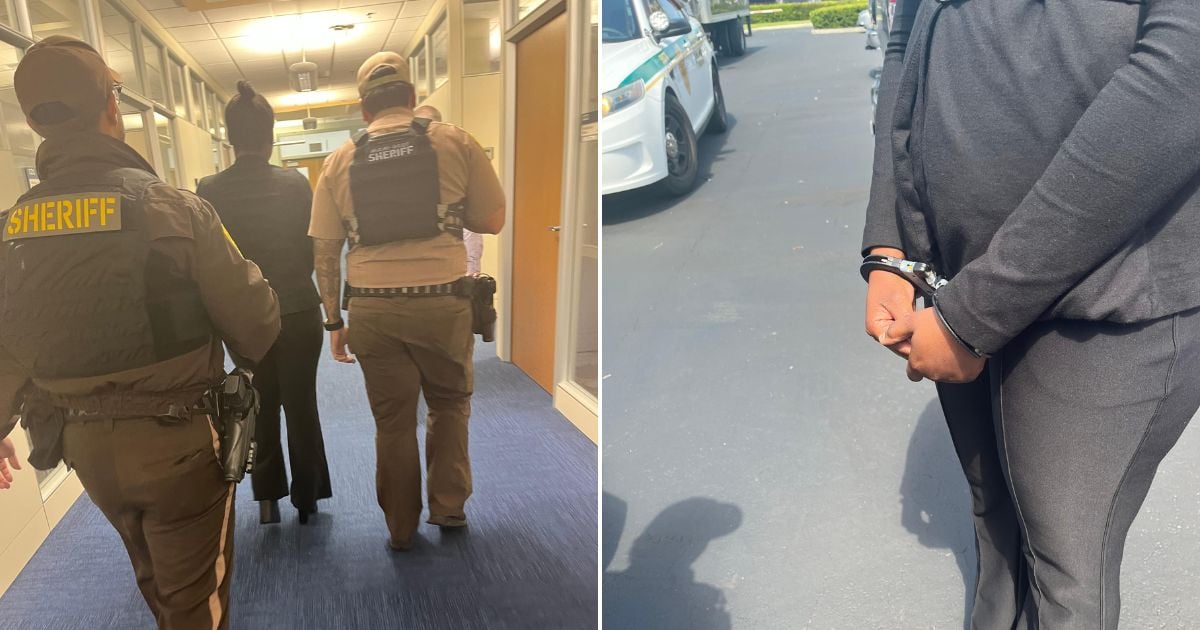The United States Citizenship and Immigration Services (USCIS) recently issued a stark warning to migrants: if you have an outstanding arrest warrant and visit one of their offices to apply for immigration benefits, you will be detained. This announcement was shared on USCIS's official account on the social media platform X, highlighting a recent case where a woman was arrested at their Miami field office.
According to the post, the woman had gone to the office to request immigration benefits for a family member, but was identified as having an active warrant. "An arrest warrant is a serious matter, regardless of the reason. If you show up at a USCIS office seeking an immigration benefit and you're found not complying with our laws, you will face consequences," the official message warned.
The statement emphasized that the Miami office is "doing its part to keep America safe," underscoring their collaboration with other agencies to identify and detain individuals with pending legal issues. This warning is significant for migrants in irregular situations or with unresolved charges.
Although USCIS offices primarily handle administrative processes, they also enforce verification protocols and work closely with law enforcement. The agency did not provide further details about the specific case of the detained woman or the number of similar arrests. However, the announcement has sparked concern that such operations might discourage migrants from attempting to regularize their status or pursue legal procedures due to fear of arrest.
Recent updates to USCIS policies and procedures have caused unease and highlighted the need for better guidance for migrants, especially those from Cuba. Notably, changes to the I-90 form, essential for green card renewals, will take effect starting June 26. USCIS has stressed that only the updated versions will be accepted, urging applicants to comply with new requirements to avoid delays or rejections.
In addition, legal experts have pointed out challenges faced by those trying to legalize their status under the Cuban Adjustment Act, particularly through the I-220A form. Attorney Willy Allen explained that many Cubans arriving with this document may not meet the criteria for permanent residency. The issue, he noted, is that the I-220A does not constitute a legal admission to the U.S., a necessary condition under the law.
Echoing this perspective, attorney Liudmila Marcelo has provided crucial advice to Cubans who entered with the I-220A. She has urged these individuals to seek legal counsel and not assume their immigration status will automatically resolve after a year and a day in the United States. Marcelo stressed the importance of avoiding reliance on rumors or incorrect information spread on social media, as misinterpreting one's immigration status can have severe consequences.
Key Questions on USCIS Procedures and Migrant Concerns
What should migrants with arrest warrants know before visiting USCIS offices?
Migrants with outstanding arrest warrants should be aware that visiting USCIS offices may lead to their detention. It's important to consult legal advice before attempting to apply for immigration benefits.
How can recent changes to USCIS forms affect migrants?
The updated I-90 form for green card renewals, effective from June 26, requires applicants to use the new version to avoid delays or rejections. Migrants must stay informed about such changes to ensure successful processing of their applications.
Why is the I-220A form problematic for Cubans seeking residency?
The I-220A form does not provide a legal admission to the U.S., which is required under the Cuban Adjustment Act to qualify for permanent residency. This creates challenges for Cubans trying to adjust their status.
